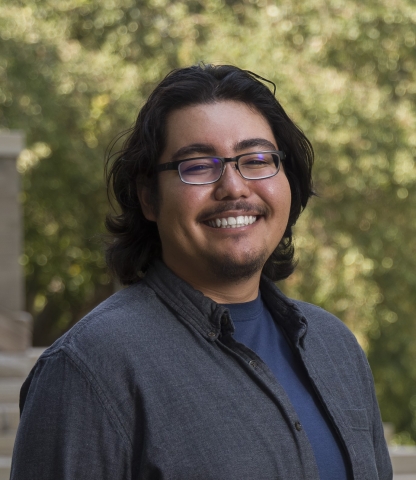At the Colorado School of Mines, chemical engineering student Marco Salgado is channeling his curiosity into research that could transform the way the world generates and stores clean energy.
“Our research is within the field of electrochemistry,” Marco explained. “Very simply, electrochemistry is just the study of how chemicals interact with electricity, how you can affect one with the other and vice versa.”
Salgado focuses on developing materials for fuel cells and electrolyzers—two devices that he says are “two sides of the same coin.” Fuel cells generate electricity from chemical fuels like hydrogen and oxygen, while electrolyzers use electricity to create new chemicals, sometimes from harmful emissions such as carbon dioxide.
“The potential impact is huge,” he said. “We’re really good at making electricity, but once you make it, it’s pretty hard to store it. With these devices, you can take surplus electricity—say from wind or solar—use an electrolyzer to turn it into a chemical, and then whenever you need that electricity back, run it through a fuel cell. It can be this neat little cycle that makes renewable energy more practical and reliable.”
For Salgado, his introduction to electrochemistry started as a happy accident.
“One of the big reasons why I got into this specific field was that I thought the title ‘electrochemist’ was pretty cool,” he laughed. “I didn’t know anything about electricity or chemistry, but as I was learning, I quickly fell in love with the science. The curiosity ignited a passion, and it just so happened that I was pretty decent at it too.”
Support from the ARCS Colorado Chapter has made a major difference in his academic journey.
“ARCS funding has really given me stability during these years in college,” he said. “I’m not from Colorado, so tuition is more expensive. Having that financial support has taken a huge load off my family and I. It means I can focus on research without worrying about whether I can afford groceries or rent.”
But for Salgado, the encouragement from ARCS members matters just as much as the financial help.
“The donors I’ve met are always pushing me to do better,” he said. “Every time I talk to them, I hear, ‘You’re doing great work—keep it up.’ That support is incredible. It motivates me to keep going and maybe even try to win the Nobel Prize someday.”
Set to graduate in May 2026, Marco says his ultimate goal is simple: “I really hope the research we’re doing can make a lasting impact on the world. These technologies have so much promise, and with ARCS support, I feel like I have the chance to help make that promise a reality.”

